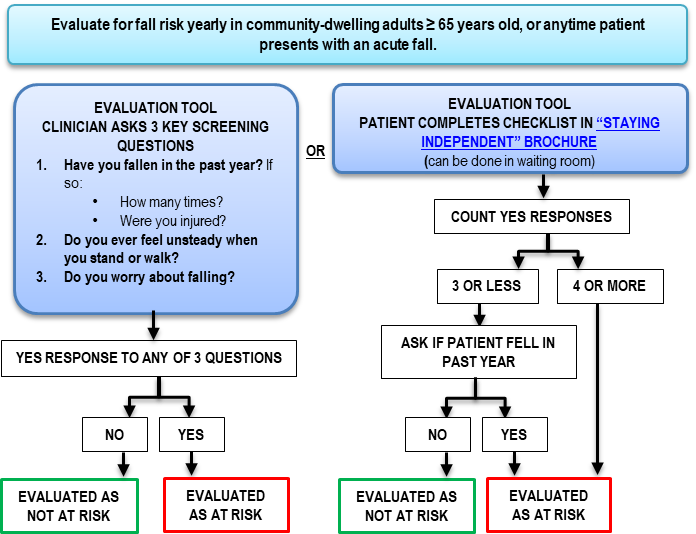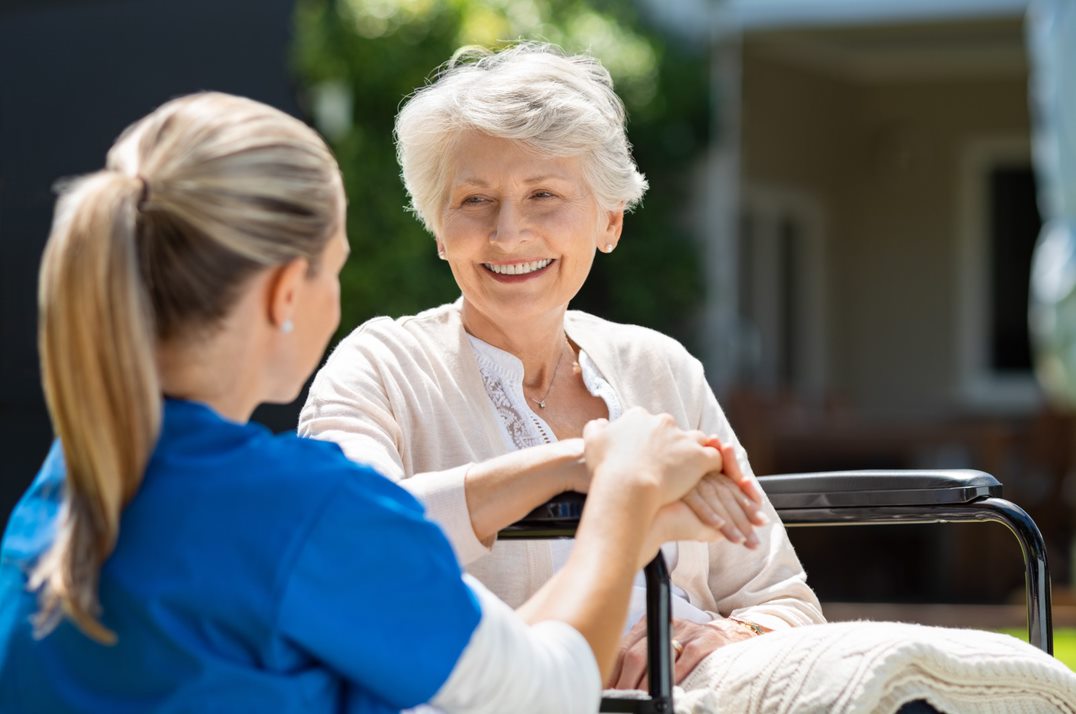Some Known Details About Dementia Fall Risk
Some Known Details About Dementia Fall Risk
Blog Article
Some Known Incorrect Statements About Dementia Fall Risk
Table of ContentsDementia Fall Risk Fundamentals ExplainedUnknown Facts About Dementia Fall Risk7 Simple Techniques For Dementia Fall RiskThe Dementia Fall Risk DiariesAll about Dementia Fall Risk
Examining loss danger assists the entire healthcare group create a much safer setting for each client. Ensure that there is a designated area in your clinical charting system where personnel can document/reference ratings and document relevant notes associated with fall prevention. The Johns Hopkins Autumn Danger Evaluation Device is one of numerous tools your personnel can utilize to assist protect against negative clinical occasions.Client falls in medical facilities are common and debilitating adverse occasions that linger in spite of years of effort to lessen them. Improving communication across the assessing registered nurse, treatment team, patient, and person's most included pals and household may reinforce loss prevention efforts. A team at Brigham and Women's Health center in Boston, Massachusetts, sought to develop a standard autumn prevention program that focused around enhanced interaction and individual and household engagement.

The technology group stressed that effective application depends upon individual and personnel buy-in, integration of the program right into existing operations, and integrity to program procedures. The group noted that they are facing exactly how to make sure continuity in program implementation during durations of dilemma. During the COVID-19 pandemic, as an example, an increase in inpatient drops was connected with restrictions in client engagement along with constraints on visitation.
9 Easy Facts About Dementia Fall Risk Described
These events are generally taken into consideration preventable. To implement the treatment, organizations require the following: Access to Loss suggestions sources Autumn TIPS training and re-training for nursing and non-nursing staff, consisting of brand-new nurses Nursing workflows that enable patient and family members engagement to perform the falls analysis, ensure usage of the prevention strategy, and perform patient-level audits.
The results can be very damaging, commonly accelerating individual decline and triggering longer hospital remains. One research estimated remains raised an extra 12 in-patient days after a person loss. The Fall TIPS Program is based on interesting patients and their family/loved ones across 3 major procedures: evaluation, personalized preventative treatments, and auditing to guarantee that people are taken part in the three-step fall prevention procedure.
The patient evaluation is based upon the Morse Loss Scale, which is a validated autumn threat evaluation device for in-patient medical facility settings. The range consists of the six most typical reasons clients in healthcare facilities drop: the person fall history, high-risk conditions (consisting of polypharmacy), use of IVs and other external gadgets, psychological standing, stride, and wheelchair.
Each threat factor links with several actionable evidence-based interventions. The nurse produces a plan that integrates the treatments and shows up to the treatment group, individual, and family members on a laminated poster or published aesthetic aid. Nurses develop the plan while meeting with the client and the client's family.
Fascination About Dementia Fall Risk
The poster works as an interaction device with various other members of the client's treatment group. Dementia Fall Risk. The audit part of the program includes analyzing the person's expertise of their threat factors and avoidance strategy at the device and healthcare facility levels. Nurse champions perform at the very least five specific meetings a month with clients and their family members to check for understanding of the loss avoidance strategy

A projected 30% of these falls cause injuries, which can range in severity. Unlike various other damaging occasions that need a standardized clinical response, loss avoidance depends extremely on the needs of the patient. Consisting of the input of individuals who know the patient ideal enables for greater customization. This strategy has shown to be more effective than loss prevention programs that are based primarily on the manufacturing of a danger score and/or are not personalized.
A Biased View of Dementia Fall Risk

Based upon bookkeeping results, one website had 86% conformity and two sites had more than 95% compliance. A cost-benefit analysis of the Loss ideas program in eight hospitals approximated that the program expense $0.88 home per patient to apply and led to cost savings of $8,500 per 1000 patient-days in straight expenses connected to the avoidance of 567 falls over three years and 8 months.
According to the technology team, organizations curious about executing the program should carry out a readiness analysis and falls avoidance spaces evaluation. 8 Furthermore, companies must ensure the needed infrastructure and operations for implementation and create an application strategy. If one exists, the organization's Loss Prevention Job Pressure should be associated with preparation.
Get This Report on Dementia Fall Risk
To start, organizations must make certain completion of training modules by registered nurses and nursing aides - Dementia Fall Risk. Healthcare facility team ought to examine, based upon the demands of a medical facility, whether to utilize a digital wellness record printout or paper version of the autumn prevention strategy. Implementing teams ought to recruit and educate registered nurse champs and develop procedures for bookkeeping and coverage on loss information
Staff need to be included in the process of redesigning the process to engage individuals and household in the analysis and avoidance strategy procedure. Equipment must be in place so that units can understand why an autumn occurred and remediate the cause. More specifically, nurses should have networks to give recurring responses to both personnel and device leadership check this site out so they can adjust and boost loss avoidance operations and connect systemic issues.
Report this page